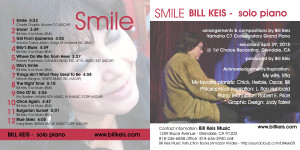In my 30-plus years of experience in the studio, I’ve worked with many producers. I have also produced lots of recordings. From all this, I evolved a concept of what makes a great producer.
For me, a producer is someone that takes the artist’s vision and gets it recorded and puts it onto the tape or the computer. The producer enhances that recording through his wealth of knowledge of recording techniques (staying up-to-date on new technology), and experience with a wide variety of musical styles, as well as an ability to play various instruments.
A producer should be able to oversee the whole project from beginning to end including: pre-production (choosing songs, arranging, rehearsing, etc), tracking, mixing, and mastering.
He would decide if live musicians were needed or not, or if it could all be done just using keyboards, computers and software. If session musicians were needed, he would know how many and be able to call up different ones that could do a good job quickly, to add to the project as needed.
A good producer communicates with the artist and figures out how to accomplish the project within a person’s budget—I always keep that in mind while I’m producing. Recording budgets can vary widely! I will try to figure out the best way to get what an artist really wants, the product they’re looking for, within the amount of money they have to spend.
Even though I would perhaps know more than the artist or band I was producing, I’m not going to just take over and say, “Well, no, you can’t do this,” or “You can’t do that,” or “It has to be this way not that way.” There are producers like that—they’re more like tyrants. They take over and say, “No, it has to be this way.”
I don’t think that’s particularly the right approach in most cases. Overall I want the client to be happy and comfortable, and feel creative and willing to express themselves.
I would say it’s extremely advantageous to have a producer who is musically trained, because they are able to get things done faster and easier. You can get a great result with someone who is not trained—they could use their intuition or their artistic and creative instincts. But you also run the risk of dabbling around with a lot more experimenting and having things take a lot longer.
A knowledge of various instruments, including keyboards and software is important. And some degree of orchestration chops is a plus. In other words, knowing what combinations of instruments with sound best for different styles is key in getting a good product.
A producer should also be someone who is well-trained in the technology of recording, and a pretty decent engineer. Contained within that is a knowledge of what microphones to use and how to place them. If you don’t mic a recording properly, you’re not going to get a sound into the computer that you can use. Then, once you recorded it, there are countless ways to edit/mix including: cleaning up any unwanted noise, pitch &/or time correction, eq, compression, reverbs &/or delays, etc.
An example of someone who has all of these qualities is Quincy Jones who, among many other accomplishments, produced Michael Jackson’s biggest albums. He is highly trained musically, knows what session musicians to bring in when needed, and knows well the technology of recording. He also keeps the artist’s vision firmly in mind the whole time and is always after a great product. Another example that fits all of these categories is Beatles’ producer George Martin.
There are “producers” nowadays that just know how to run the equipment, and know how to use the computer programs, but don’t even know how to play the piano or guitar, or don’t know anything about music. Some might be able to get results by putting samples together or splicing things together—but that’s a whole different type of producer. You wouldn’t want to get one of those guys to produce a country tune or a jazz tune or a classical piece or even a pop song. They might do a great job in certain kind of genres like the hip-hop or trance electronica stuff, but for just about anything else they’re kind of limited, in my opinion.
It is true that a great recording does not necessarily require a state-of-the-art high end studio. In fact, many of the recordings you hear today are done in a tiny little studio, because the technology has gotten to the point where you can do that. But in such a situation you still need to have certain things in place—like really good software and someone who is competent and knowledgeable about how to use it. You will still have to have decent microphones. And last but not least, you still need a knowledgeable producer.
Knowledge and skills along with the care factor, as outlined above, that’s what makes a producer great.



